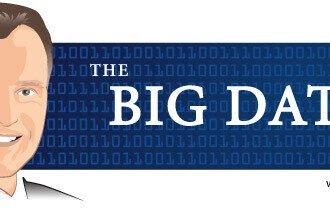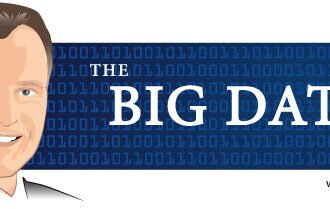Do you wish your organization were performing better? Of course, the answer is yes. And a “yes” answer will be more emphatic from those of you whose organizations are struggling. We all worry about our livelihood. Similar to the “nature versus nurture” question about whether one’s genes or the environment contributes more to an individual’s personality and character, I pose this question: What influences an organization’s future performance more – the competence of its current executive management team or the momentum or excess baggage of its culture?
Do you wish your organization were performing better? Of course, the answer is yes. And a “yes” answer will be more emphatic from those of you whose organizations are struggling. We all worry about our livelihood. Similar to the “nature versus nurture” question about whether one’s genes or the environment contributes more to an individual’s personality and character, I pose this question: What influences an organization’s future performance more – the competence of its current executive management team or the momentum or excess baggage of its culture?
The decline of the strong
There are many examples of the decline of the once strong. One example is the India conglomerate Tata Group’s February 2007 acquisition of the Corus Group, the descendent of British Steel. This was the largest acquisition ever by an Indian firm. It was a role reversal, where an organization of a former British colony has flexed its financial muscle to those who once were the rulers.
Another example is the decline of the US automotive industry with household auto manufacturer names, like General Motors and Ford. Their decline can be mapped back to the oil crisis of the 1970s. That crisis allowed Japanese car manufacturers, like Honda, to leverage their skills in manufacturing lawn mower and powerless 90cc motorcycles into producing fuel-efficient and defect-free automobiles. The problem with the Detroit-based auto manufacturers may not even be about the lackluster products that they are accused of offering. The problem may be that large and/or or old companies have deep-seated cultures that may be fine for nostalgia but are too slow to change and adopt new values to achieve higher performance.
What makes the difference? Executive talent and moxie or the organization’s culture? We accept the practices of organizational change management to modify employee behavior. People typically resist change. Most people like the status quo – it is human nature. However, I have always questioned if a strong change management process can induce a change in an organization’s culture. Culture runs deep in organizations. Can enterprise performance management solutions embedded with business analytics make the difference?
A successful turnaround
I have witnessed evidence that applying strategy maps and the associated balanced scorecard, two of the major components of the performance management framework, can change a culture. William V. Catucci, now the retired CEO of AT&T Canada’s Long Distance Services, provides audiences at conferences with a gripping story of how he turned a despondent and sinking company into a winner. In the late 1990s, Catucci’s company had been losing market share and become extremely unprofitable. Worse yet, an employee morale survey reported a most dejected workforce. Had the company sunk too far to avoid bankruptcy?
Catucci had read an article about strategy maps and balanced scorecard. He rolled up his sleeves and began implementing in a disciplined way. Like a sailing ship’s captain, he first set a new direction. That is a CEO’s job. The big challenge is always then determining how to get there. Very importantly, he communicated his direction to the managers and employees by defining the various strategic objectives to spark innovation, redesign business processes and become much more customer-focused. Managers and employees were asked if they wanted to stay or leave the ship. Their commitment was crucial. Many resigned. The rest of the story is a success story. Within two years, the organization had doubled the customer base when the industry was growing at 4 percent. The company was now profitable, and revenue had increased from $273,000 to $370,000 per employee. Most importantly, employee morale measured an all-time high. In 1998, Catucci was a finalist for the Canada CEO of the Year award. Catucci described AT&T Canada’s transformation as a culture change, and he attributed it to applying performance management methodologies.
Nurture or nature? When good leadership is equipped with the sound and proven methodologies that constitute performance management, an organization’s culture can be changed for the better.
If you’d like to read more on this topic, read my article, “Why do once successful companies fail?”







